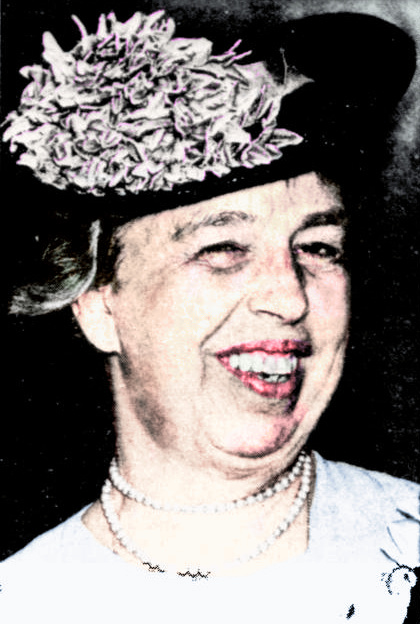
MY DAY
By Eleanor Roosevelt
January 1, 1941
Washington, Tuesday –
This is the end of the year and all of us, I suppose, turn our minds back over the past year and think of what has happened to the world and to ourselves.
The world outlook must make us grieve. Peoples with no desire, many of them, to make life miserable for each other, have found themselves, nevertheless, drawn into the mesh of war, until the misery spread throughout the world is constantly increasing.
Some things can perhaps be counted as gains. For instance, the rise in England of the sense of cooperation and fellowship between all groups of peoples who find themselves the victims of a common danger and are bound together by a common determination.
We, in this country, as a nation, have made certain gains. We have come, I think, to a greater knowledge of the need for knowing our own nation and for accepting responsibility for the conditions which exist in it. We recognize that we frame the policies which govern our attitude toward both world and domestic conditions, and that we support or reject them in the long run.
The greater awareness and sense of responsibility is something for which to be grateful in a democracy. Young and old people have worked on awakening this interest and participation, and I think it is bearing fruit in a more intelligent citizenry. Of course, the democratic methods of discussion must bring certain recriminations on the part of those who differ with each other as to method, or even as to fundamental theories, but these differences only serve to stimulate interest, and a greater sense of responsibility on the part of those who must defend and uphold their own beliefs.
I doubt if anyone will say a thoughtless “Happy New Year.” They will know that happiness is hard to achieve in a world where war and famine and poverty and injustice still hold sway. Most of us will wish each other a “Happier New Year,” vowing inwardly that whatever we can do to obtain peace with honor and justice for all, we will do in the future. In our own country and in our own lives, we will try to disassociate ourselves from our personal interests sufficiently to help bring about such things as seem to be of benefit to our whole people.
Justice for all, security in certain living standards, a recognition of the dignity and the right of the individual human being without regard to his race, creed, or color – these are things for which vast numbers of our citizens will willingly sacrifice themselves. Progress may be slow, but as more of us keep this determination in our minds and hearts, I feel sure we will be able to say, as we look back over each year:
This has been a Happier New Year.